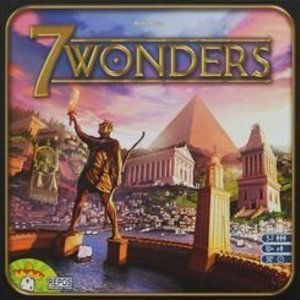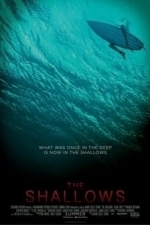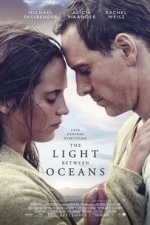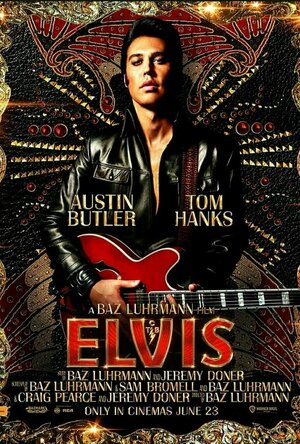
Reading Eggs - Learn to Read
Education and Games
App
Reading Eggs is the multi-award winning learning system that helps children learn to read. Based on...

ColRegs: Nav Lights & Shapes for Boating and Sailing
Education and Navigation
App
Quick learning & revision tool, over 100 graphics, for all seafarers - this sailing, boating &...

NAVIONICS SKI
Navigation and Sports
App
The most comprehensive app for ski and snowboard! Navionics Ski app includes maps of over 2,000...

7 Wonders
Tabletop Game Watch
You are the leader of one of the 7 great cities of the Ancient World. Gather resources, develop...
BoardGames
Bob Mann (459 KP) rated The Shallows (2016) in Movies
Sep 29, 2021
Waxing lyrically. The shapely Blake Liveley.
Waxing lyrically. The shapely Blake Liveley.
Blake Lively (“The Age of Adeline“) plays surfer and trainee doctor Nancy, still grieving the recent death from cancer of her mother and travelling to a remote Mexican surf beach where she has photos of her mother surfing while pregnant with her. While surfing alone, Nancy is attacked a couple of hundred yards from the shore by a Great White and severely injured. She has the choice of refuge of either a low rock or another less palatable floating object. Choosing the rock (at low tide) she is faced with the dilemma of both surviving her injuries and then being rescued before the high tide takes the rock and leaves her to the mercy of the ever circling big-fish.
We're going to need a bigger rock.
We’re going to need a bigger rock.
A big summer blockbuster this is not, with a total cast of eleven (not including a guest appearance of Steven Seagull (as himself)). But the small cast doesn’t make it less gripping, and gripping it most certainly is, with tension building progressively (emphasised periodically by an on-screen clock) with the countdown to high tide.
Blake Lively is an underrated actress and really delivers the goods here. And bearing in mind the problems that Spielberg had with his mechanical shark Bruce (named after Spielberg’s lawyer) the appearance of the shark is limited to where actually needed, with Lively having to fill in the blanks with reaction shots. As your imagination is still far better than any special effects, this is hugely effective for certain sequences.
Pure horror: here Dad had gone down to the video rental and come back with 'Dirty Grandpa'.
Pure horror: her Dad had gone down to the video rental and come back with ‘Dirty Grandpa’.
The film draws similarities to another interesting entry in the “Jaws” genre – “Open Water 2: Adrift” from 2006. In that film there was the same incessant threat of shark attack combined with the audience frustration that safety (in that case, the deck of their yacht, if only they had let a ladder down) being so near. Here the 200 yards to the shore is shoutable to but still 190 yards too far.
The cinematography (by Flavio Martínez Labiano) is also just beautifully done with some stunning surf and underwater shots that not only highlight Ms Lively’s lithely (sic) figure and her Californian surfing skills, but also the beauty of the ‘Mexican coast’ (actually Lord Howe Island in New South Wales, Australia).
“The Shallows” was written by Anthony Jaswinski and directed by Jaume Collet-Serra (the director of “Non-Stop“, aka Taken 3.5). It comes with a truly impressive BvS quotient of just 5.9%!
So with all of this going for it, you would think that my rating is heading towards at least a 4.5. But all films like this require a satisfying denouement, and unfortunately this is where this one comes off the rails. It is just plain silly and, together with an unnecessary and irritating epilogue scene, diminishes what was on track to be one of the best films of the summer. So here’s the “One Mann’s Movies” solution:
Using Final Cut X, Adobe Premier or your favourite video editing suite, cut out the scene from 115:00 to 116:00 from “Jaws”;
Photoshop Blake Lively’s face onto Roy Scheider’s body.
Insert the finished clip into “The Shallows” at about 82 minutes in.
Enjoy a 5-Fad classic!
This limitation aside, it’s still worth your while hunting it out at a cinema near you, since the fantastic cinematography is best suited to a big screen.
Bob Mann (459 KP) rated The Light Between Oceans (2016) in Movies
Sep 29, 2021
For this is a good old-fashioned weepy melodrama: leisurely, character based and guaranteed to give the tear ducts a good old cleaning out.
It’s 1918 and Michael Fassbender plays Tom Sherbourne, a damaged man seeking solitude and reflection after four years of hell in the trenches. As a short-term job he takes the post of lighthouse keeper on the isolated slab of rock called Janus – sat between two oceans (presumably as this is Western Australia, the Indian and the Southern Oceans). The isolation of the job previously sent his predecessor off his trolley.
En route to his workplace he is immediately attracted to headmaster’s daughter Isabel (Alicia Vikander) who practically THROWS herself at Tom (the hussy), given that they only have snatches of a day at a time to be together during shore leave. Tom falls for her (as a hot blooded man, and with Vikander’s performance, this is entirely believable!) and the two marry to retire to their ‘fortress of solitude’ together to raise a family and live happily ever after…. or not… For the path of true motherhood runs not smoothly for poor Isabel, and a baby in a drifting boat spells both joy and despair for the couple as the story unwinds.
(I’ll stop my synopsis there, since I think the trailer – and other reviews I’ve read – give too much away).
While Fassbender again demonstrates what a mesmerising actor he is, the acting kudos in this one really goes again to Vikander, who pulls out all the stops in a role that demands fragility, naivety, resentment, anger and despair across its course. While I don’t think the film in general will trouble the Oscars, this is a leading actress performance that I could well see nominated. In a supporting role, with less screen-time, is Rachel Weisz who again needs to demonstrate her acting stripes in a demanding role. (Also a shout-out to young Florence Clery who is wonderfully naturalistic as the 4 year old Lucy-Grace.)
So this is a film with a stellar class, but it doesn’t really all gel together satisfyingly into a stellar – or at least particularly memorable – movie. After a slow start, director Derek Cianfrance (“The Place Beyond the Pines”) ladles on the melodrama interminably, and over a two hour running time the word overwrought comes to mind.
The script (also by Cianfrance, from the novel by M.L.Stedman) could have been tightened up, particularly in the first reel, and the audience given a bit more time to reflect and absorb in the second half.
The film is also curiously ‘place-less’. I assumed this was somewhere off Ireland until someone suddenly starting singing “Waltzing Matilda” (badly) and random people started talking in Aussie accents: most strange.
Cinematography by Adam Arkapaw (“Macbeth”) is also frustratingly inconsistent. The landscapes of the island, steam trains, sunsets and the multiple boatings in between is just beautiful (assisted by a delicate score by the great Alexandre Desplat which is well used) but get close up (and the camera does often get VERY close up) and a lack of ‘steadicam’ becomes infuriating, with faces dancing about the screen and – in one particular scene early on – wandering off on either side with the camera apparently unsure which one to follow!
A memorable cinema experience only for Vikander’s outstanding performance. Now where are those tissues…
BankofMarquis (1832 KP) rated Elvis (2022) in Movies
Jun 28, 2022
And…the resulting film - appropriately called ELVIS - works very well, but not because of Luhrmann’s Direction/Style but more because of the TERRIFIC performance at the center of this picture - and, no, I’m not talking about Tom Hanks as Col. Parker.
ELVIS follows - with the usual Luhrmann quick/cut, flashy style - the rise, fall, rise and (ultimately) death of Elvis Presley. Starting with his boyhood in Tupelo, Mississippi - where he found his rhythm in the roots of African-American Gospel/Spirituals - to his ascension to superstar, this films tries to tell it all, mostly through the shadowy viewpoint of Elvis’ Manager, Col. Tom Parker (a heavily made-up Tom Hanks).
And that is part of the problem with this film - it tries to tell TOO big a story, so while some items are covered in slow, glowing detail (like Elvis’ discovery of the music that will be his trademark), while other items (his movie career) are glossed over quickly in a montage. This is out of necessity, for this film is already 2 hours and 40 minutes long, but it does make this film feel somewhat disjointed - especially when you add Luhrmann’s trademark disorienting quick/cut, stylistic directing style. At times I just wanted to yell at Lurhman to lock his camera down in one position so my eyes (and brain) can settle down and watch what’s going on.
The other issue is the viewpoint of this film - it isn’t consistent. Is this a movie about Elvis? Is this a movie about a conman manipulating Elvis? It starts out following Col. Parker as he discovers Elvis and manipulates him to be his exclusive act, but then we leave Col. Tom and follow Elvis for long periods of time before being drawn back into Col’s Parker’s web, so there is confusion as to who’s story we are telling. In the end we tell both, and each one suffers a little bit because of this.
HOWEVER - and this is an important point - these issues are pushed to the back as minor flaws as the central performance of Austin Butler (Wil Ohmsford in the terrible adaption of THE SHANNARA CHRONICLES on TV) as Elvis is AMAZING. It is a captivating, multi-layered performance both on-stage and off. He has created a character that you are drawn to watch and the off-stage Elvis sets the stage for the charismatic, on-stage Elvis that we all know. Butler did his own singing/performing in this film and it is much, much more that “just” an Elvis impersonation. He personifies “The King” and Butler’s name better be called at Awards time. It is that good of a performance, one that should catapult this young man to stardom.
Fairing less well is Tom Hanks as Col. Parker. While he is game under all that make-up, the character is just not written with any nuance and comes off as a one-dimensional villain, constantly lurking in the background. This character just wasn’t interesting enough to hold the screen - especially against Butler.
But see this film to rekindle the spirit of Elvis through the interpretation of Butler, you’ll be glad you did.
Letter Grade: A-
8 stars (out of 10) and you can take that to the Bank(ofMarquis)

Universalis
Lifestyle and Reference
App
Join the thousands of people who use Universalis daily! You will get: • The Catholic liturgical...

hayu - reality TV shows on demand & celebrity news
Entertainment
App
The hayu app is the home of the best reality TV and the juiciest celebrity gossip – all in one...



